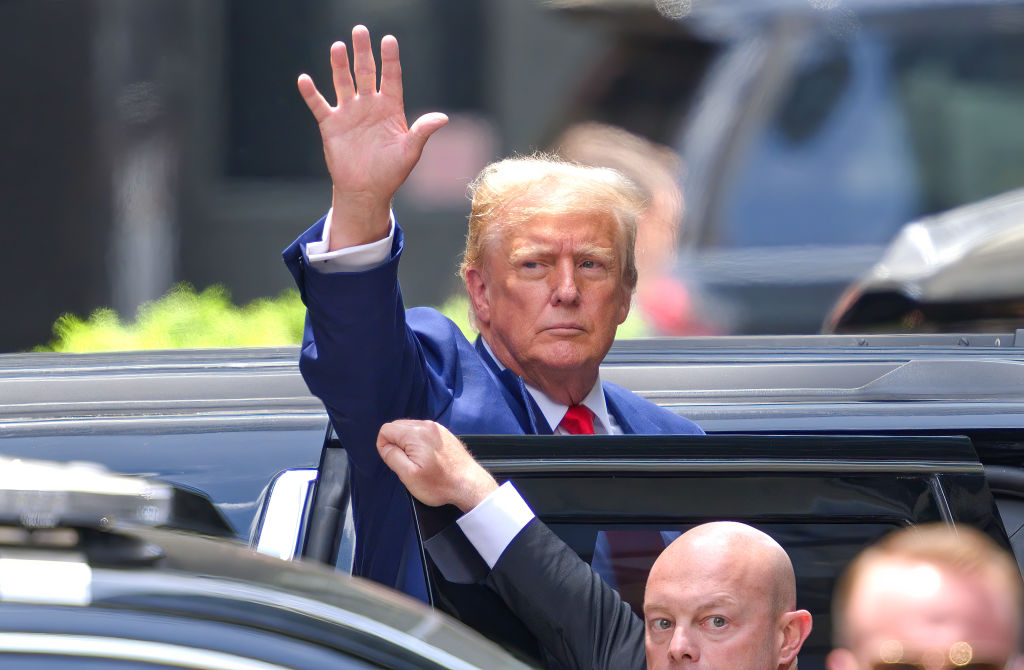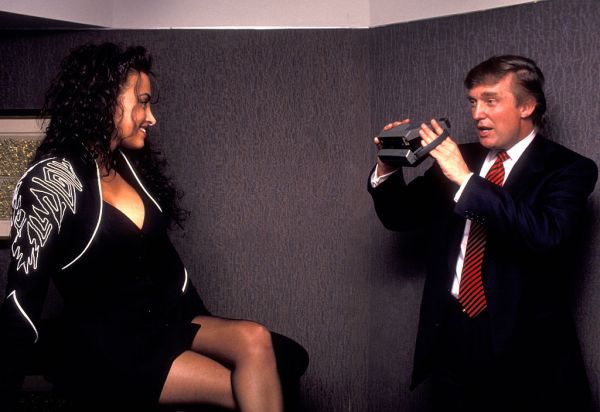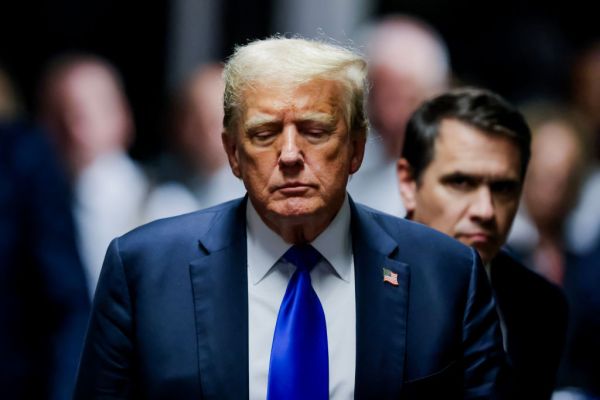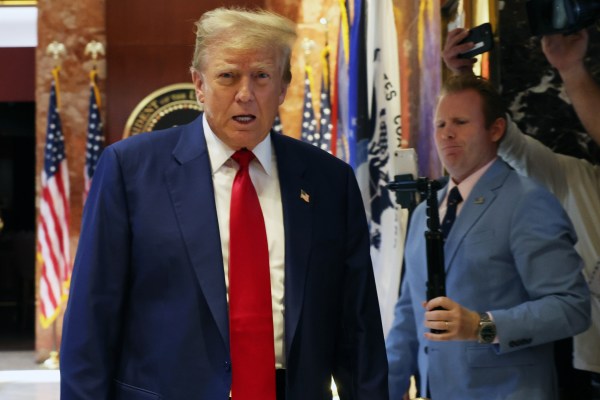How much will Donald Trump’s conviction in the New York hush money case matter come November?
The obvious answer is that nobody knows. Still, I suspect the verdict will matter, just not in ways that are easy or even possible to predict.
A lot of the instant reaction revolves around polls. We talk about polls not because they are so important but because we lack much else to go on. Like the proverbial drunk who looks under the streetlamp for his lost keys because the light is much better there, we look at polls because they at least illuminate something, even if it’s not very much.
The smattering of surveys conducted since Thursday’s verdict shows that slightly more than half of Americans think the jury was correct. A CBS poll found that the verdict changed very few minds, though a small number had more negative views of Trump. None of that is very surprising given that attitudes about the trial have tracked attitudes about Trump.
Now, if the judge throws Trump in jail for an extended term—which seems both unlikely and indefensible given the nature of the crime—it’s possible that attitudes will swing more in Trump’s favor. But if it’s just for a day, attitudes probably won’t change so much as intensify.
If the opinions indicated by the latest polling hold constant for the roughly 150 days between now and November 5, one could plausibly argue that the verdict will cost Trump the election. The consensus among experts across the partisan spectrum is that this election will be decided by a tiny number of votes in a handful of states, so a movement of even a couple of percentage points away from Trump could be decisive. But opinions don’t hold constant, at least not among the kind of voters who will decide the election.
Until recently, Trump was enjoying higher favorability ratings than at any time during his presidency. A mixture of nostalgia for the pre-COVID Trump-era economy and dissatisfaction with President Biden has been better for Trump than anything he actually did when he was president.
No one knows what will happen over the next five months, but it’s not unreasonable to assume that the verdict will shrink in importance for everybody over time. But given the closeness of the race and the voters who will decide it, that doesn’t mean it won’t have lasting consequences.
Many Trump boosters responded to the verdict with declarations such as “Trump just won the election.” This wish-casting stems from the belief that outrage over the verdict will cause more voters to rally around Trump. So far, however, the evidence points to the opposite.
It’s true that Republican outrage over the verdict has motivated Trump’s supporters in much the same way as the FBI search of Mar-a-Lago. The result has been a windfall of donations to the Trump campaign, including from crucial first-time donors. Given Trump’s fundraising difficulties compared with Biden, that could matter.
But one analytical error Trump world consistently makes is the idea that attitudes about him inside the MAGA bubble extend to voters outside it. Trump’s biggest fans believe they represent America generally, which is one reason they still believe America couldn’t have voted to oust him in 2020.
We don’t know how the verdict will change the behavior of not just the voters but also the candidates. If Biden overplays Trump’s status as a “felon,” it could underscore the view that he lacks any persuasive arguments for his reelection on the merits. It could also bolster the unfounded charge that Biden orchestrated the prosecution to his benefit.
Meanwhile, if Trump listens to his biggest fans and indulges his own sense of grievance—not a particularly big “if”—he could end up making the election a referendum on him, and the chaos he brings, rather than a referendum on Biden.
I don’t think this case ever should have been brought, but I also think it’s crazy to say it represents “the end of the country as we know it,” as Ohio Sen. J.D. Vance insisted. Indeed, it’s remarkable to see so many people who once claimed the trial didn’t matter to voters suddenly insist they will care so much about its outcome.
Voters will care about all sorts of things. And the odds are good that to the extent Trump’s conviction matters at all, it ratifies the opinions most Americans already held.







Please note that we at The Dispatch hold ourselves, our work, and our commenters to a higher standard than other places on the internet. We welcome comments that foster genuine debate or discussion—including comments critical of us or our work—but responses that include ad hominem attacks on fellow Dispatch members or are intended to stoke fear and anger may be moderated.
With your membership, you only have the ability to comment on The Morning Dispatch articles. Consider upgrading to join the conversation everywhere.